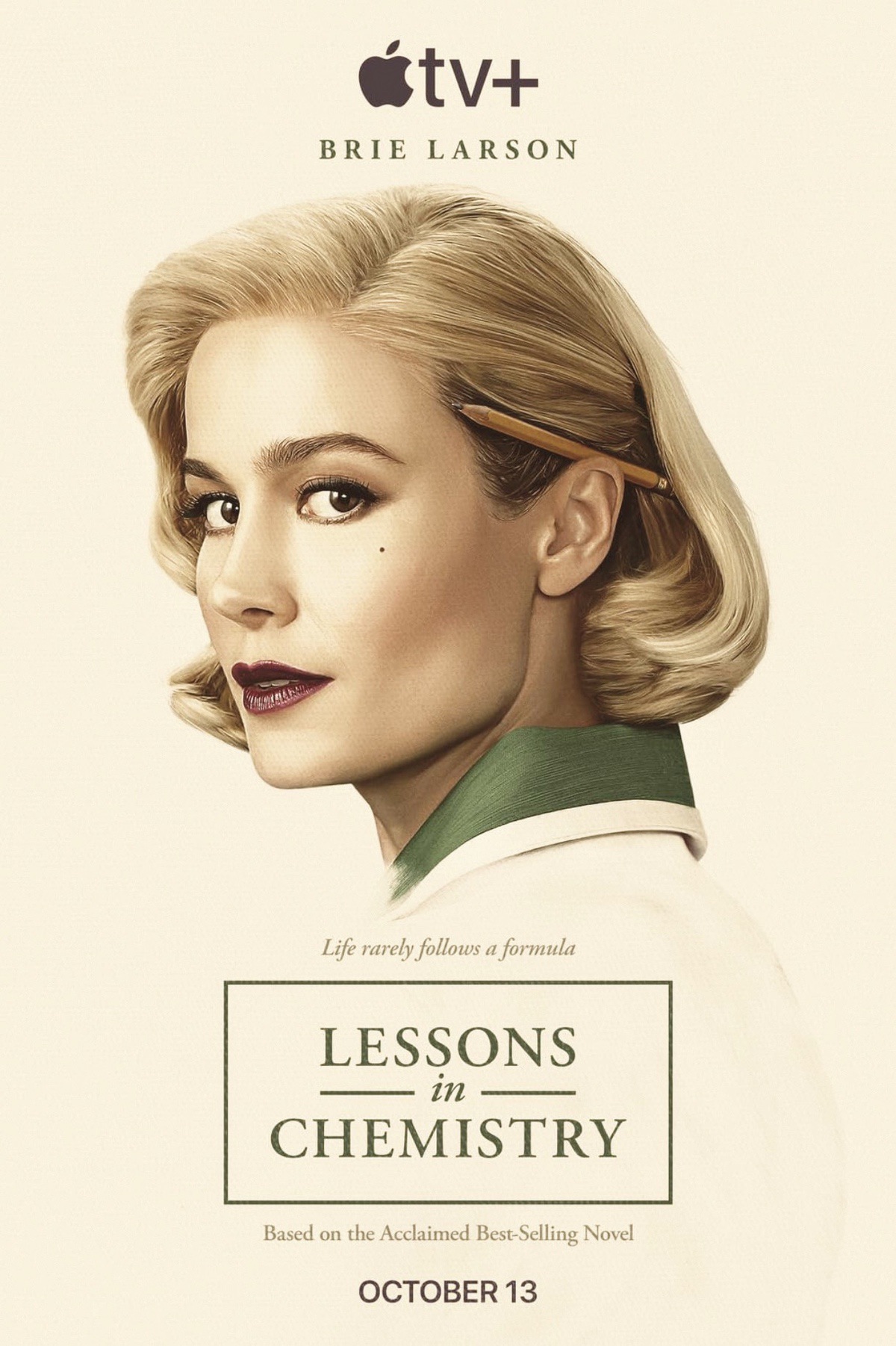
To paraphrase Jane Austen, there is no greater enjoyment like reading.
Of course, she never lived to see the age of moving pictures on large screens nor the advent of cathode rays and LED. True, books are still a singular pleasure that is best digested solitary. But it’s solely the reason why studios have snatched up acclaimed works, ripe for visual adaptation. There is already a core fanbase ready and eager to watch. And the notoriety alone hooks even a casual viewer. “Oh, that is that thing I have heard of,” one might say. And as fall comes upon us and winter dead ahead, there will be no shortage for us to work through. Here are some worth checking out.
Lessons in Chemistry, which streams over on AppleTV+, is based on the novel by Bonnie Garmus. A huge bestseller, it was only inevitable we would see some form of film or show. In this miniseries, we are introduced to biochemist/lab assistant Elizabeth Zott. It’s the 1950s and it is a man’s world unfortunately. Liz has dreams of achieving her doctorate, which was dashed for reasons I will not reveal. During her work at a prestigious university, she meets star researcher Calvin Evans. It is your typical girl and boy don’t get along at first, but warm to each other. It is extremely precious to watch things begin to blossom slowly, starting with their twin loves of science and food.
I, for one, haven’t read the book. However, after the first three episodes, my interest has peaked at seeing how the written word matches what is seen. The author has contributed some, much like Gillian Flynn has. The look of the show is painstakingly beautiful without being kitschy; something many period pieces of the 50s tend to languish in. Much like Mad Men, this setting feels lived in.
Brie Larson is, quite simply, the perfect choice to play a character like Zott. Her staid attitude towards that which doesn’t intrigue her speaks more than any loud, showy performance. This is only punctuated by moments of excitement or distain, all which serve to illustrate Zott rather than adding any pomp. Most think of Larson as just Captain Marvel. But I am reminded of her Oscar-turn in Room; her acute use of a word or phrase that might seem innocuous at first thought but hits hard. I can’t wait to see the next episode.
Also on Apple TV+, the documentary The Pigeon Tunnel focuses on a particular author. Here Errol Morris interviews, for the last time, David Cornwell better known as John le Carré. As the interview progresses, the line between fact and fiction becomes extremely tenuous. As Morris quotes from the author’s memoir of the same name, “None of it is true; it is as I imagined it.” It is not hard to understand that a spy’s life would be full of these half-truths and grand illusions. We learn of his parents, a swindler father and a mother who abandoned the family. His school days lead into his teacher’s job, which he left for British Intelligence.
Inter-spliced between le Carré talking are re-enactments with actors as well as scenes from films based on his novels. Much of this is reminiscent of Morris’s pervious work like The Thin Blue Line and The Fog of War. Again, he works with composer Philip Glass, who weaves a thrilling and hypnotic score like one which would grace a secret agent flick. Morris’s camerawork speaks to the fractured nature of this conversation. As le Carré says, “But I will answer any question you wish me to answer as truthfully as I can.” A brilliant final chapter to an amazing life, you all should check it out and judge for yourself.




